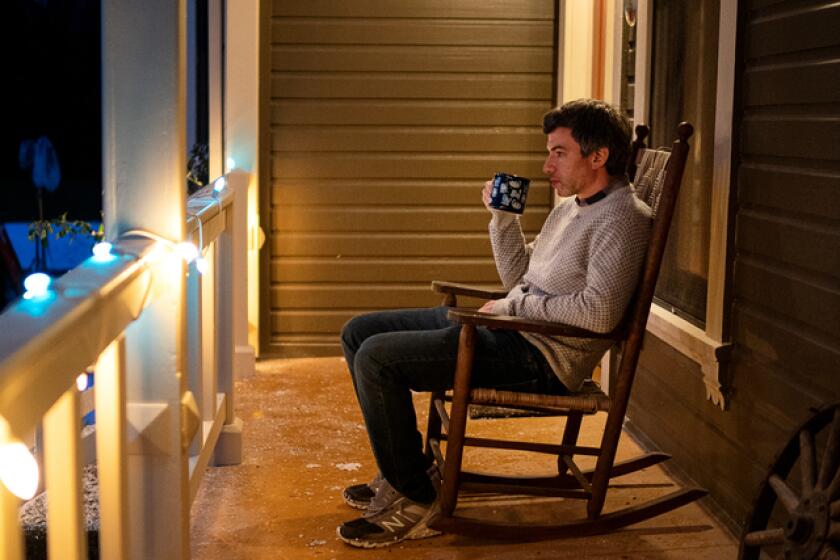‘The Curse’ is a winding tragic comedy from the minds of Nathan Fielder and Benny Safdie
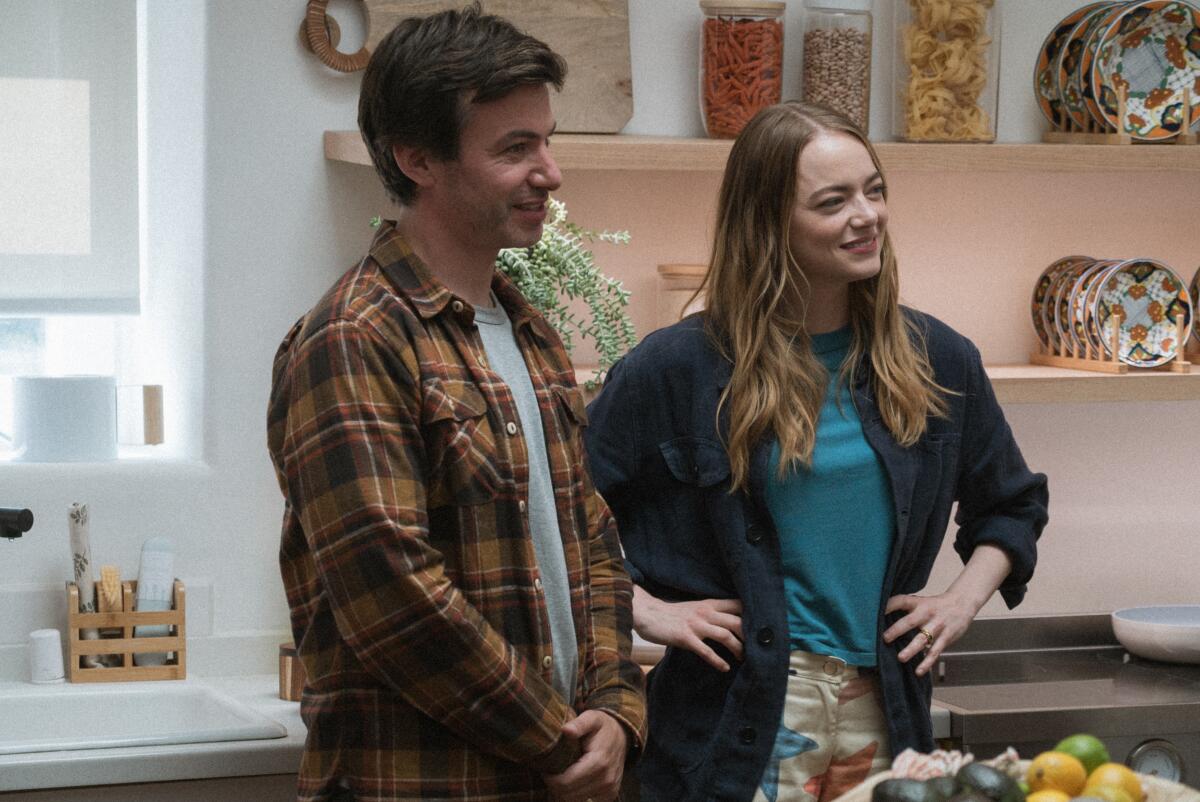
- Share via
It was a foregone conclusion that “The Curse,” co-created by and co-starring Nathan Fielder, from “Nathan for You” and “The Rehearsal,” and Benny Safdie of the film-directing Safdie Brothers, of “Good Time” and “Uncut Gems,” would be at least interesting. As a collaboration, it’s something new for both, scripted straight through, unlike Fielder’s meta social-experiment prank shows, and something of a psychological thriller, with an element of horror, but animated by Fielder’s themes, subjects and, one might venture, neuroses.
The 10-episode series, which premieres Friday on Showtime, is nothing if not ambitious, and it has been clearly thought through, shot by shot; it feels extraordinarily intentional. Even when scenes go on long, nothing feels like filler; everything has its place. At the same time, with its overarching and underlying narratives, and its cornucopia of interest — gentrification, racism, white privilege, white guilt, cultural/spiritual appropriation, performative good works, marital breakdown, karma and the doomed attempt to live authentically for a public — the enterprise as a whole can feel wobbly, loose, unfocused. Possibly you are meant to wonder as you go, just what path you’re finally on; that was definitely the case with “The Rehearsal.”
The tone is more tragic than comic, even if it has something of the exaggerated tone and farcical situations of comedy — indeed, it reportedly started out as a half-hour sitcom before morphing into its present, darker, hour-long form. It’s not a comedy and doesn’t seem to want to be, yet many of the incidents could, with a few adjustments, launch an episode of “Curb Your Enthusiasm.”
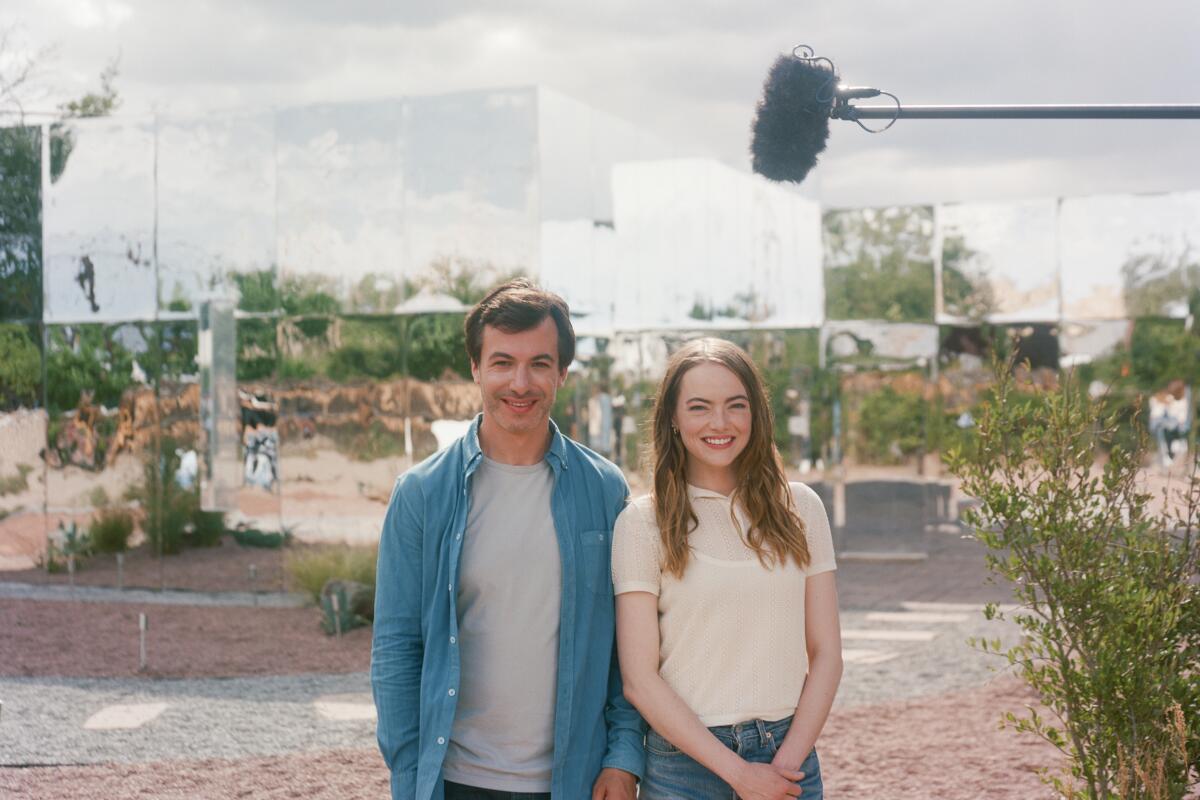
Fielder and third star Emma Stone play Asher and Whitney Siegel, not long married, who have set up house in the (real) town of Española, N.M., up the road a way from Santa Fe, where her parents (Corbin Bernsen and Constance Shulman) live. The house they have set up is one of Whitney’s invention, eco-friendly, carbon-neutral and “invisible” — it is all mirrors on the outside, or to be precise, “laminated with a photovoltaic profile” — and certified by Germany’s Passive House Society. (Passivhaus, it’s a real thing.)
The Siegels are building more of these around town as they film a pilot for HGTV, tentatively titled “Flipanthropy,” in which they are to be shown aiding locals they have displaced. The pilot is being directed by Ash’s controlling childhood friend Dougie (Safdie), whose earlier (unsold) pilot is a sort of “Phantom of the Opera” riff on “The Bachelor,” in which the bachelor is a burn victim, masked until after the wedding. Dougie, who is only interested in making “good television” — which is not necessarily to say television that’s good for the Siegels, as a human couple, or HGTV, as a business — is trouble, and troubled. “Come on, it’ll be fun,” he says again and again, as he attempts to manipulate people into giving him what he wants — which is to say, fun for him.
In a crucial early scene, Asher waits to speak to a reporter at whom he’s railed over her repeated questions about Whitney’s parents, who have a reputation as slumlords. At Dougie’s prompting, for the camera, he gives money to a little girl (Hikmah Warsame as Nala) selling mini-cans of Sprite in a parking lot. All Asher has is a $100 bill, and when, the shot done, he tries to get it back from her (though he promises to “get change”), she curses him, like a witch. There’s no indication that she’s magic, but it sets up a buzz of paranoia in his head. This will not be the last we see of her or her father, Abshir (Barkhad Abdi), who coincidentally is squatting in one of the buildings the Siegels have slated for demolition.
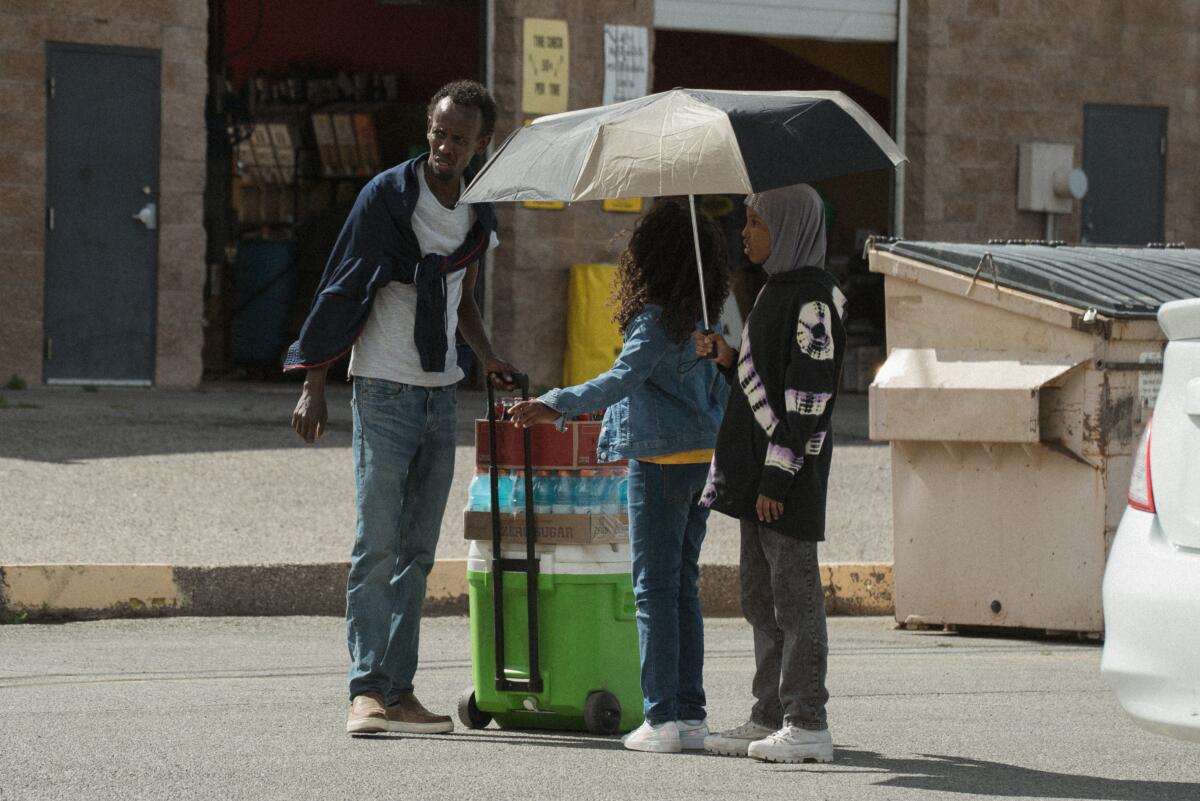
That’s just the beginning of a long trip, made longer by the creators’ interest in letting scenes run on (and on), even minor or interstitial scenes — I was reminded of David Lynch’s third season of “Twin Peaks” and of Stanley Kubrick — which creates both reality and anxiety. There is Whitney’s friendship, as she sees it, with Cara (Nizhonniya Austin), a Picuris Pueblo artist, and her own desire to be taken seriously as a creative person. (She regards her mirrored house as art, though in that regard she’s just accused of ripping off Doug Aitken.) There is a plotline wrapped around Asher’s previous employment at an Indian casino. There is the matter of what’s eating Dougie, who is not as carefree as he likes to pretend. There are some questions regarding parenthood. There is Asher’s couldn’t-be-any-more-symbolic very small penis. Much has to do with maintaining a high-end cafe and a jeans store in a strip mall. Not all plot developments are sensible; some of the couple’s decisions are too outrageous to be taken quite seriously.
In HBO’s ‘The Rehearsal,’ the reliably fascinating comedian helps people rehearse for major life moments. But Fielder’s ultimate subject is himself.
The phoniness of reality television itself is not so much the point — that’s understood, even by most reality TV fans, and it’s been satirized often — as how it changes the characters’ own relationship to honesty and exploits their need to be seen and heard. Whitney and Asher are in their own minds trying to do good, but there’s a self-protective if not self-promotional element to their imagined altruism; because whatever else they are doing, they are trying to make a television show, and make money. (Dougie is only trying to make money and a reputation, when he isn’t just messing with Asher or Whitney, which is nearly all the time.)
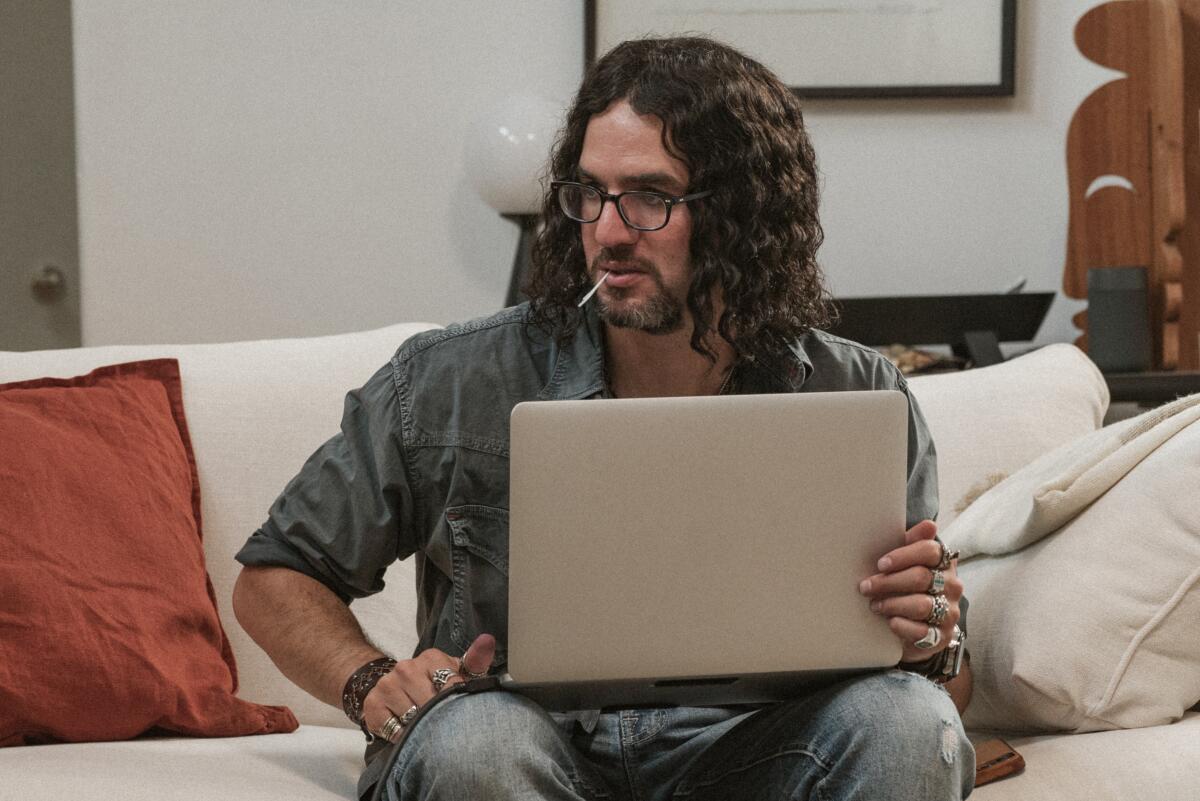
They are characters of a familiar sort, whose need to be liked, or loved, makes them less likable, whose uptightness makes others uptight — and this applies to the viewer as well. Each in their own way is a lot of work, and it can make the series, which is awash in tension even when nothing much is happening — John Medeski‘s electronic score keeps things on edge — a trying experience. Even as it remained abstractly interesting, I was ready long before the end to be done with the characters — but that is generally the case with Fielder’s schtick.
For all that Whitney and Asher live at high boil, the show itself stays cold; I wasn’t invested in anyone’s fate, at least not on a sentimental level. The cinematography itself is distancing, favoring long shots, shots through windows or into mirrors, or from half-occluded angles, as if the viewer were not “in” the scene, but monitoring it from afar, the camera hidden as in a prank show.
Smudging the line between the real and the artificial — or, seen another way, trying to know the difference — is Fielder’s M.O. In “Nathan for You,” he posed as a business consultant who offered weird but not always unproductive advice to actual small businesses; in “The Rehearsal,” he staged elaborate scenarios to help people prepare for difficult encounters or make major life choices. In each, he explored his own difficulty to live naturally. He’s the Dougie of his earlier series, playing with people for the sake of the narrative. We’re reminded that “The Curse” is itself a construction, a box to hold its characters of whom it is, one might say, self-aware. In a kind of internal echo, a focus group reacting to the pilot, has a problem with Asher, just as you might; they wonder why Whitney married him, a question you may have asked yourself.
As it goes on, the series doesn’t seem to be heading toward any obvious conclusion, or any conclusion, which leads one to suspect that something horrible, possibly violent might happen. Well, I won’t say. The final episode — in an impressive piece of staging — careers at high speed toward what might be called a fairy tale. But there are all sorts of fairy tales.
More to Read
The complete guide to home viewing
Get Screen Gab for everything about the TV shows and streaming movies everyone’s talking about.
You may occasionally receive promotional content from the Los Angeles Times.
